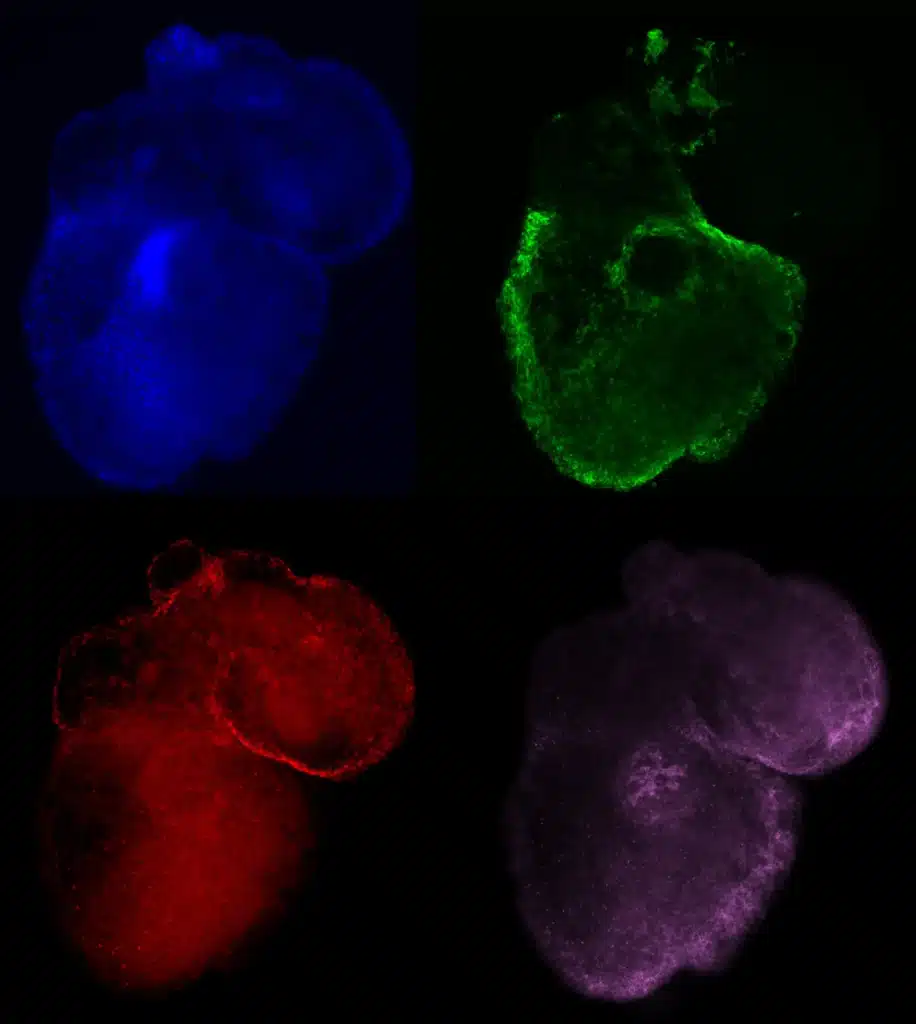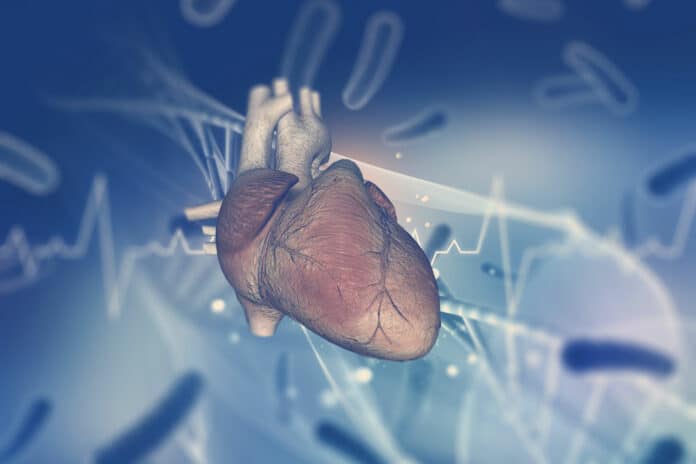Michigan State University allows researchers to study heart development and diseases more accurately by advancing in making synthetic human-like hearts. These models help develop new therapies and drugs for heart-related diseases, especially during American Heart Month in February.
These mini heart organoids closely resemble fetal human hearts in size and development. The MSU team, known for their pioneering work in this area, has recently published their latest advancements in prestigious journals like Nature Communications and Stem Cell Reports, along with coverage on the National Institute of Health’s website.
Aitor Aguirre, associate professor of biomedical engineering and chief of the division of developmental and stem cell biology in MSU’s Institute for Quantitative Health Science and Engineering, highlighted the importance of using realistic models to find effective treatments for cardiovascular disease.
With an estimated 21 million deaths annually linked to heart and blood vessel issues, finding solutions is essential. Aguirre emphasized that despite most cases being preventable, cardiovascular disease is the top cause of death in developed countries.

He mentioned that advancements in stem cell technologies and bioengineering enable the growth and study of human hearts, leading to revolutionary medical approaches in treating and preventing heart diseases and congenital conditions by enhancing our understanding of disease mechanisms.
“In the future, we expect fewer patients to require treatment and new drugs will be developed more quickly for those who do. Prevention is key, especially for congenital disabilities. Mini heart organoids can revolutionize healthcare by changing how we approach it.” Aguirre explained
For instance, Aguirre pointed out that pharmaceutical companies withdraw drugs from the market if they cause heart problems. Predicting toxicity could save time and money and lower the risk of drug failure.
The mini heart organoids are made using donated adult pluripotent stem cells. Their complex and relevant nature allows researchers to study human heart development and diseases in a way never seen before.
Aguirre said, “We created a model using these organoids to study the effects of maternal diabetes at every stage of development in the fetal heart. This is the definition of precision medicine. We can use science to make clinical practice more precise.”
The development of realistic synthetic human mini-hearts by MSU researchers gives us hope for advancing our understanding of heart biology and disease.
Journal reference:
- Volmert, B., Kiselev, A., Juhong, A. et al. A patterned human primitive heart organoid model generated by pluripotent stem cell self-organization. Nature Communications. DOI: 10.1038/s41467-023-43999-1.
- Aleksandra Kostina, Yonatan R. Lewis-Israeli et al., ER stress and lipid imbalance drive diabetic embryonic cardiomyopathy in an organoid model of human heart development. Stem Cell Reports. DOI: 10.1016/j.stemcr.2024.01.003.
